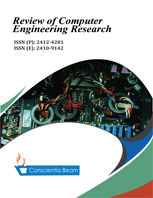Exploring model-as-a-service for generative ai on cloud platforms
DOI:
https://doi.org/10.18488/76.v11i4.4017Abstract
This study examines the exploration of Model-as-a-Service for generative AI on cloud platforms. Model-as-a-Service (MaaS) could revolutionize generative AI; thus, we examine its impact on sectors, implementation best practices, and future trends. Business usage of generative AI for content development, predictive modelling, and consumer engagement is flexible and scalable using Software as a Service (SaaS). We explore how MaaS lets companies access, train, and deploy complex generative models like Generative Adversarial Networks (GAN), Variational Autoencoders (VAE), and Transformers without expensive in-house AI infrastructure. Lifecycle management in MaaS simplifies model training, deployment, versioning, and continuous improvement for iterative development in dynamic business contexts. MaaS security and compliance are crucial in highly regulated areas, including healthcare, finance, and law. Encryption, network isolation, and access control protect data and models. Generative AI models handle sensitive data; hence, industry standards and data sovereignty must be followed. Ethical AI, edge computing, and low-code/no-code platforms will enable more people to use models in real time and follow responsible AI guidelines, making MaaS's future bright. Generative AI applications and real-world case studies in healthcare, banking, retail, and entertainment demonstrate how MaaS can create value and stimulate innovation. Our study finds that using MaaS for generative AI, businesses can immensely benefit and explains how developers can speed up development, improve customer experiences, and remain ahead in the ever-changing digital landscape.





